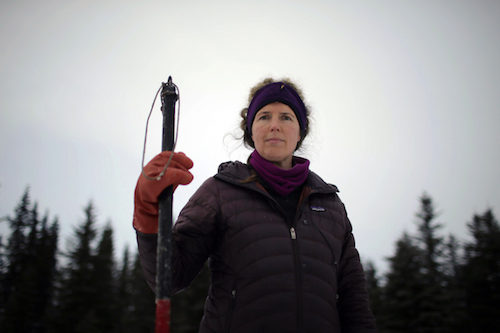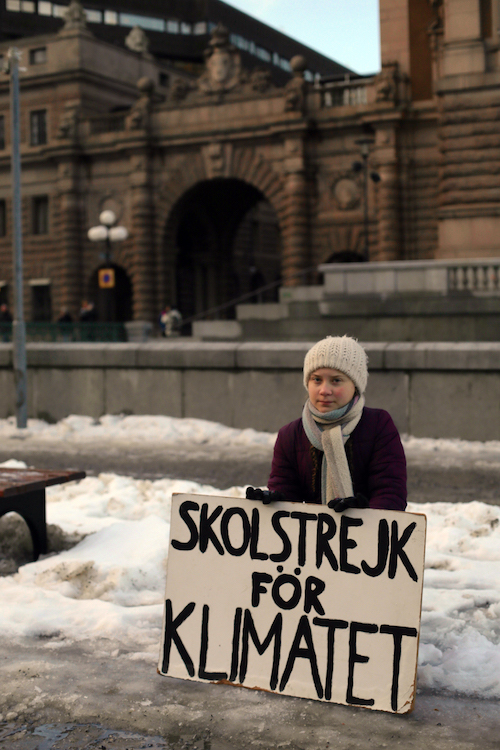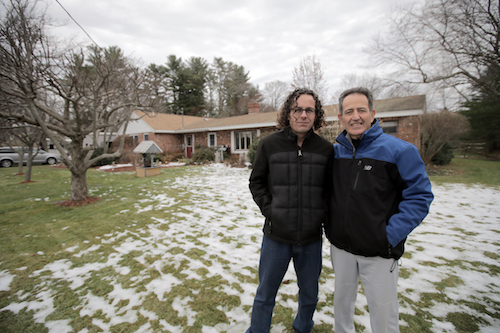Communiqué
What could happen if global warming exceeds 1.5 degrees in CLIMATE CHANGE – THE FACTS – Dec. 29 at 10 pm
< < Back toPBS Reveals Surprising Truths About Climate Change in New Documentary CLIMATE CHANGE – THE FACTS
Wednesday, December 29 at 10 pm
One-Hour Special Examines the Startling Impact of Climate Change and Poses Potential Solutions
CLIMATE CHANGE – THE FACTS, presents scientific evidence of the impact of global warming. The program also examines possible solutions to the crisis, including the latest innovations, technology and actions individuals can take to prevent further damage.

CLIMATE CHANGE – THE FACTS brings together leading climate scientists who explain what might happen if global warming increases 1.5 degrees. Experts examine the consequences of rising temperatures on ice sheets, fragile ecosystems, developing communities and extreme weather events. Personal accounts of California wildfires, extreme coastal flooding in Louisiana and increasing temperatures in Australia paint vivid pictures of these devastating effects.
“In the 20 years since I first started talking about the impact of climate change on our world, conditions have changed far faster than I ever imagined,” said Sir David Attenborough in CLIMATE CHANGE – THE FACTS. “It may sound frightening, but the scientific evidence is that if we have not taken dramatic action within the next decade, we could face irreversible damage to the natural world and the collapse of our societies. We’re running out of time, but there is still hope.”
The program warns of potential tipping points that could trigger further catastrophic events, such as methane gas escaping from melting lakes in the arctic. While these scenarios are discouraging, the program also inspires individuals to take action and make a difference. Experts offer hope that changes can be made in the next decade to reduce CO2 emissions and limit further damage. These include increased advocacy, advances in alternative energy technologies and innovative solutions to capture existing carbon dioxide.

Researchers from around the world provide global context to the crisis in CLIMATE CHANGE – THE FACTS. Featured experts include Dr. James Hansen, former director of NASA Goddard Institute for Science Studies; professor Naomi Oreskes, science historian at Harvard University; professor Michael Mann, climate scientist at Penn State University; Richard Black, director of the UK Energy & Climate Intelligence Unit; professor Andrew Shepherd, climate scientist at The University of Leeds, Sunita Narain, director general of India’s Centre for Science and Environment; and Greta Thunberg, Swedish teenage climate advocate and Nobel Peace Prize nominee.
For more information on CLIMATE CHANGE – THE FACTS, visit www.pbs.org. Viewers are also encouraged to engage in online conversation about the series by tagging @PBS and using #ClimateChangeFilmPBS on Facebook, Twitter and Instagram.
CLIMATE CHANGE – THE FACTS is a BBC Studios co-production with IWC Media. Tom McDonald is Commissioning Editor for BBC Studios. The program is executive produced by Sacha Baveystock, Andrew Cohen and Jonathan Renouf. Serena Davis is the series producer and director.
Sir David Attenborough, Presenter
For the last 60 years, David Attenborough has been one of the world’s leading natural history filmmakers, making landmark series including Life on Earth, The Blue Planet and Planet Earth, seen by billions of people across the world. His extraordinary career has spanned black and white, color, HD and 3D formats and his films have won multiple Emmys and British Academy (BAFTA) awards. David was knighted by the Queen in 1985 and was given Britain’s highest honor, the Order of Merit. He has also received numerous other awards and is a fellow of the Royal Society. In Britain, David Attenborough is considered a national treasure and has recently been voted Britain’s most popular trusted person. David’s films continue to push the boundaries of camera technology and CGI in factual storytelling. His latest ambitious multimedia projects include both apps

and virtual reality (VR) which both entertain and educate global audiences of all ages. David joined the BBC in 1952 and within several years created his acclaimed ZooQuest series – filming wild animals in their natural habitat for the very first time. By 1965, he was Controller of BBC Two and responsible for the introduction of color television into Britain. In 1973, he left BBC senior management to return to his passion of program-making. The internationally acclaimed, thirteen-part series Life On Earth was the most ambitious series that had ever been produced by the BBC’s Natural History Unit, and created the famous ‘landmark’ format that continues to make the Natural History Unit world renowned to this day. Throughout the 1990s, David presented natural history series to huge global audiences, including The Trials of Life (1990), The Private Life of Plants (1995), and The Life of Birds (1998). In autumn 2000, David presented State of The Planet and a year later The Blue Planet. In 2002, he presented the immensely popular Life of Mammals, followed by Life in the Undergrowth and Life in Cold Blood. In 2006, he narrated the much-celebrated blue-chip series, Planet Earth, followed by Life (2009) Frozen Planet (2011), Africa (2013) and Life Story (2014). In 2016, he made two award winning specials: Light On Earth and Attenborough’s Giant Dinosaur. Sir David has presented the four-time BAFTA and two time Emmy award-winning series Planet Earth II (2016) along with Emmy award winning series Blue Planet II, (2017) for which he won the award for Outstanding Narrator. He has since narrated Dynasties, (2018) and Seven Worlds, One Planet (2019).
Earth Day 2020
Join PBS this Earth Day, April 22nd, 8:00 – 11:00 p.m., for a night of environmental programs featuring scientists as they chase clues to gain a greater understanding of our planet. Follow scientists in CLIMATE CHANGE: THE FACTS, as they explore what could happen to our planet if global warming exceeds 1.5 degrees. Discover how water underpins every aspect of our existence in H2O: THE MOLECULE THAT MADE US “FLOW.” Uncover how colossal floods violently reshaped the ancient world alongside geologists in NOVA “Killer Floods.”

